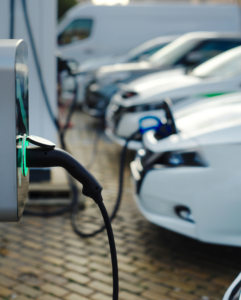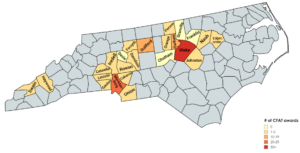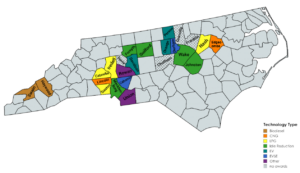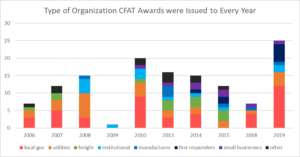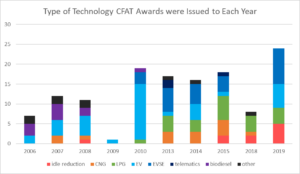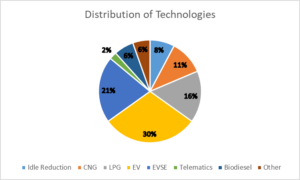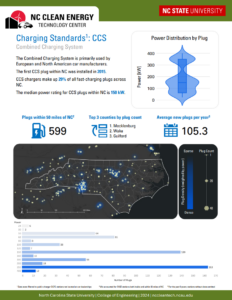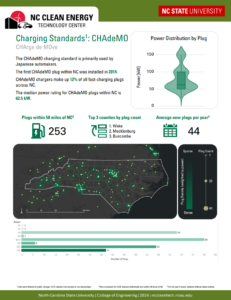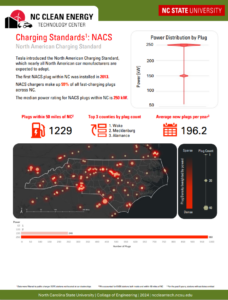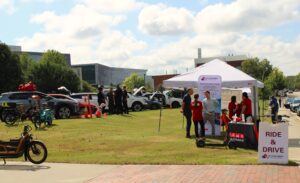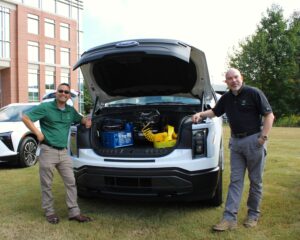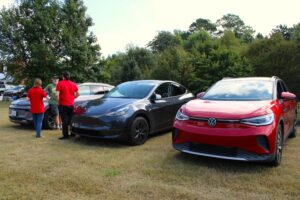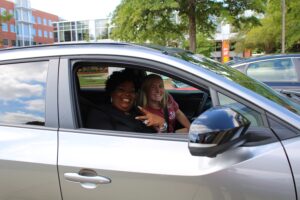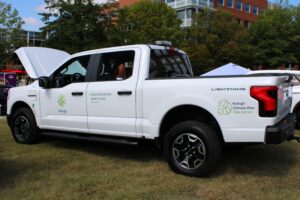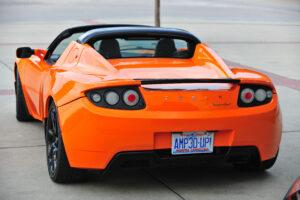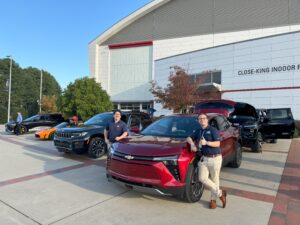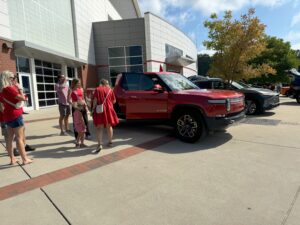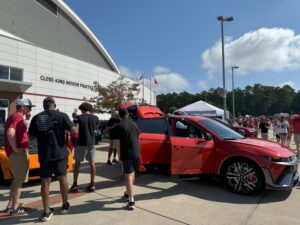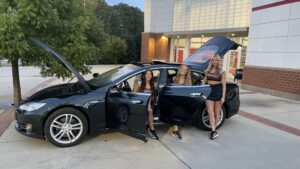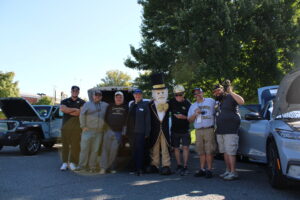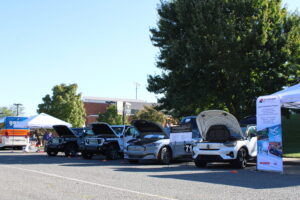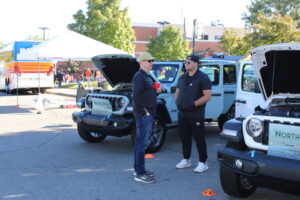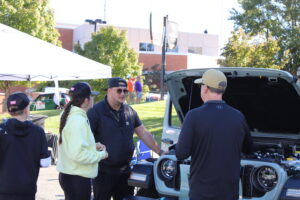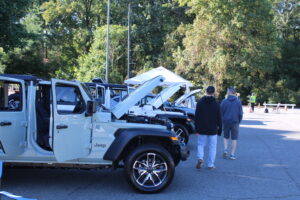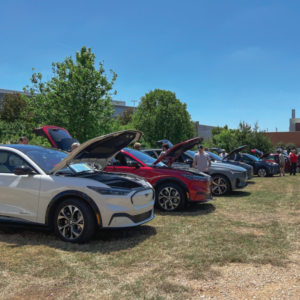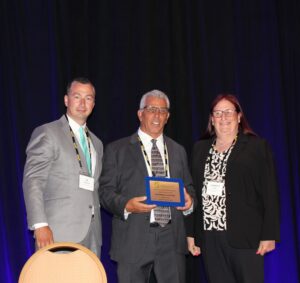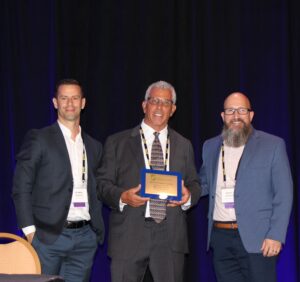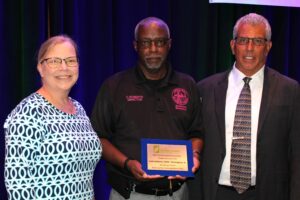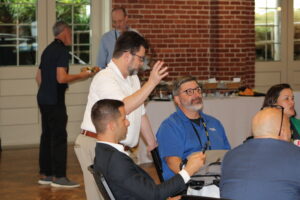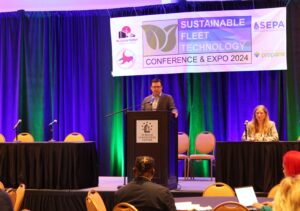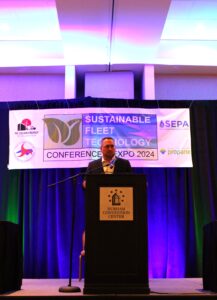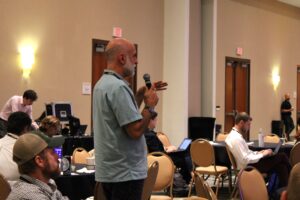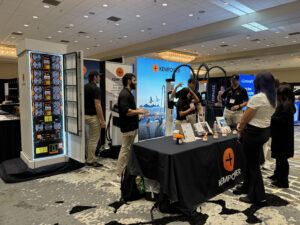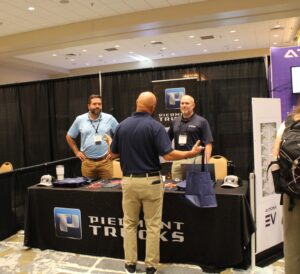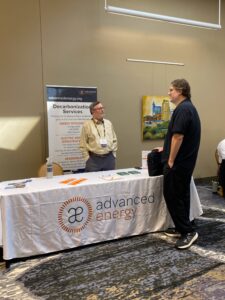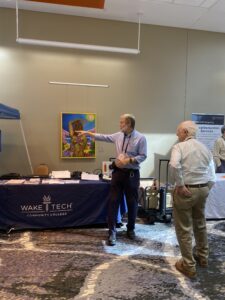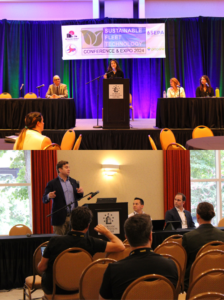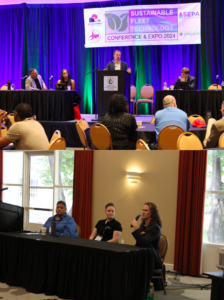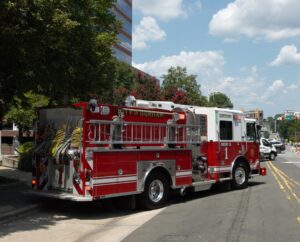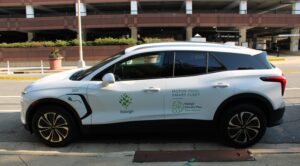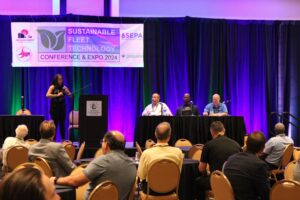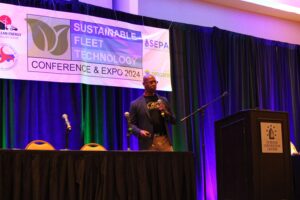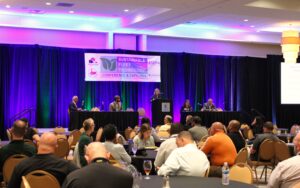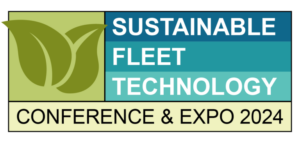Free Technical Assistance Now Available to Local Governments in All 50 States
Washington, D.C. (Jan. 14, 2025) — Charging Smart, a U.S. Department of Energy (DOE)-funded technical assistance and designation program is now available in all fifty U.S. states. Charging Smart offers free technical assistance to help local governments accelerate the growth of electric vehicles (EVs) and charging infrastructure.
By removing barriers to EV deployment, participating communities can unlock economic development, cleaner air, and other local benefits while maintaining project safety. Local governments can earn Bronze, Silver, or Gold designations, providing national recognition of their status as an EV-friendly community.
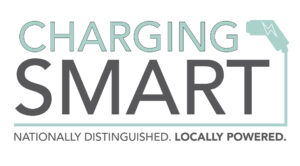 Charging Smart initially launched in a pilot phase in 2023, providing services to local governments primarily in the South and Midwest, as well as Colorado, Connecticut, and southern California. Nine cities in Minnesota were the first to earn Charging Smart designations in 2024. Eden Prairie, Falcon Heights, Faribault, Inver Grove Heights, Oakdale, Roseville, and St. James, Minnesota earned Bronze designations, while Hopkins and La Crescent, Minnesota earned Silver. These local governments updated their permitting and inspection practices, reviewed zoning rules, and took other measures to increase the accessibility of EV charging infrastructure. Now, cities and counties in any U.S. state can access the benefits of participation.
Charging Smart initially launched in a pilot phase in 2023, providing services to local governments primarily in the South and Midwest, as well as Colorado, Connecticut, and southern California. Nine cities in Minnesota were the first to earn Charging Smart designations in 2024. Eden Prairie, Falcon Heights, Faribault, Inver Grove Heights, Oakdale, Roseville, and St. James, Minnesota earned Bronze designations, while Hopkins and La Crescent, Minnesota earned Silver. These local governments updated their permitting and inspection practices, reviewed zoning rules, and took other measures to increase the accessibility of EV charging infrastructure. Now, cities and counties in any U.S. state can access the benefits of participation.
Charging Smart and its sister program, SolSmart, “really served as a good catalyst for us to make our permitting process faster and more efficient,” said Jason Ludwigson, Sustainability Coordinator for the City of La Crescent. “The programs helped us to reduce barriers to entry, particularly for electric vehicles and charging infrastructure, and improved community connections.”
Charging Smart is led by the Interstate Renewable Energy Council (IREC), with Great Plains Institute (GPI) serving as lead partner on the project. Other partners include RMI, the International City/County Management Association (ICMA), Forth, the National Association of Regional Councils (NARC), EV Noire, the Metropolitan Mayors Caucus (MMC), the North Carolina Clean Energy Technology Center (NCCETC), and eight Clean Cities and Communities (CC&C) coalitions across the country.
“Every community deserves access to the resources and expertise they need to evolve their transportation systems for the future,” said Gabe Klein, executive director of the Joint Office of Energy and Transportation. “IREC’s expanded Charging Smart program complements federal offerings with the local technical assistance and resources needed to accelerate EV charging permitting, policy, and projects, creating more transportation options for more Americans.”
“The national launch of the Charging Smart program will help communities simplify EV charging deployment procedures, such as permitting and inspection processes,” said Austin Brown, director of the Vehicle Technologies Office. “This will ease the burden on local governments, reduce the total cost and timelines for EV infrastructure deployment, and advance access to charging across the U.S. – reducing costs for families and pollution for everyone.”
“The national launch of Charging Smart is an opportunity for all U.S. local governments—from large cities to small, rural towns—to deploy practices tailored to their specific needs,” said Ed Gilliland, Senior Director, Strategic Initiatives at the IREC. “Drawing from a well-vetted menu of 150 specific actions, the program offers localities a clear path to achieve designation and become proficient in facilitating the growth of EVs and EV charging.”
“Transportation electrification has the potential to be nothing short of a revolution, though it comes with its challenges. The Charging Smart program can help any community navigate this challenge by combining expert technical assistance, resources, and peer networks. GPI has seen the impact of our work in the pilot phase, with 11 cities across the Midwest earning the first Charging Smart designations. We are grateful for the DOE’s continued support and excited to expand the program nationwide with our partners!” said Mackenzie Love, AICP, Senior Program Manager and Transportation Planner at the Great Plains Institute.
“Local governments play a vital role in advancing clean transportation. Charging Smart equips them with the tools, guidance, and recognition to expand equitable and accessible electric mobility in their communities. We are proud to partner with IREC to empower municipalities in this essential work,” said Forth Executive Director Jeff Allen.
“Municipalities have the power to transform the way people and goods move, to the environmental, social, and economic benefit of their communities. While they face many challenges in their EV charging infrastructure buildout efforts, they should know that they don’t need to reinvent the wheel, and that, through the Charging Smart program, organizations like IREC, RMI, and many others are working to support their work and improve the lives of the people they serve,” said E. J. Klock-McCook, Principal, Carbon-Free Transportation at RMI.
“Expanding Charging Smart to all 50 states is a transformative step toward ensuring every community—urban, suburban, and rural—has the tools and resources to embrace equitable e-mobility solutions,” said Dr. Shelley Francis, Co-Founder of EVNoire. “This program not only accelerates the deployment of EV infrastructure but also helps local governments foster cleaner air, economic growth, and more connected, accessible communities for all.”
“Charging Smart provides a great opportunity for local governments to signal their support for electric vehicles. The North Carolina Clean Energy Technology is excited to help local governments in the Southeast discover their specific pathway to designation,” said Brian Lips, Senior Project Manager for Policy at the North Carolina Clean Energy Technology Center.
“Charging Smart provides a simple set of actions that local governments can take to support transportation electrification and signal local communities are EV-ready. EEI and our member companies are proud to join in the development of this program as part of our ongoing work to better enable electric transportation and make sure the benefits of an electrified future are shared by all,” said Charles Satterfield, Senior Manager of Electric Transportation at the Edison Electric Institute (EEI). EEI serves as an advisory partner for the project.
“Getting charging infrastructure developed in a timely way is essential to achieving the benefits of transportation electrification to all communities. It has been a high priority for the Alliance for Transportation Electrification (ATE) and our work in a task force on interconnection issues between the customer and utility. One of the key steps in the service connection process is getting needed permissions from local governmental entities including city and county. All layers of government – especially state and local government agencies – need to work together to get infrastructure for EV charging stations sited, deployed, and finally energized with the local grid. We commend the Charging Smart initiative for focusing on these issues and developing clear criteria that local governments, utilities, and charging station providers can reference to help accelerate the rapid building out of this essential infrastructure,” said the Alliance for Transportation Electrification (ATE) in a statement.
Charging Smart is part of DOE’s Energy Ready suite of programs, which help local governments strategically manage the expansion of distributed energy technologies, including EV charging infrastructure, solar power, and distributed wind energy. All Energy Ready programs offer free technical assistance to U.S. local governments, helping them cut red tape, save staff time, ensure safety, and increase economic development associated with these technologies.
For more information on Charging Smart, including how eligible communities can sign up, visit ChargingSmart.org. In addition, the program is offering a free Introduction to Charging Smart webinar on Feb. 4. Register here.
Media Contacts:
Shannon Helm, Communications Director, NC Clean Energy Technology Center, shannon_helm@ncsu.edu or 919-423-8340.
ABOUT THE NC CLEAN ENERGY TECHNOLOGY CENTER
The NC Clean Energy Technology Center, as part of the College of Engineering at North Carolina State University, advances a sustainable energy economy by educating, demonstrating and providing support for clean energy technologies, practices and policies. It serves as a resource for innovative, sustainable energy technologies through technology demonstration, technical assistance, outreach and training. For more information about the Center, visit: http://www.nccleantech.ncsu.edu. X (Formerly Twitter): @NCCleanTech II LinkedIn



